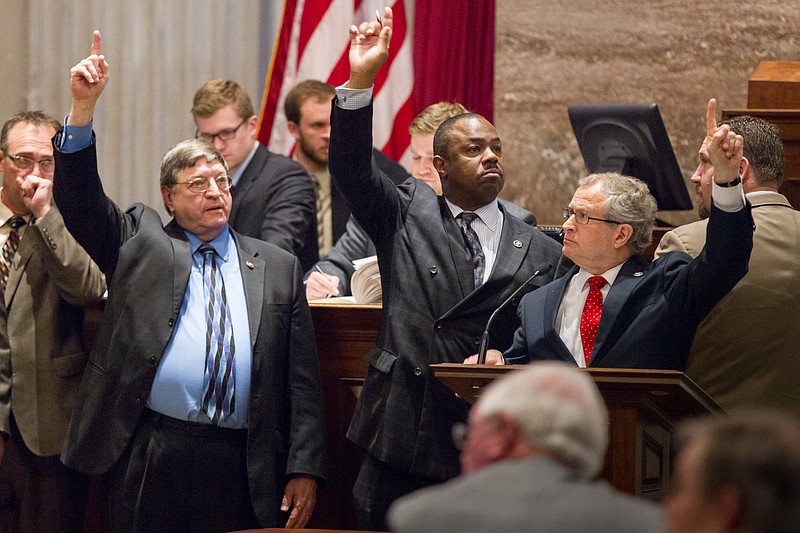NASHVILLE, Tenn. (AP) - A proposal that would allow students lawfully in the United States to be eligible for in-state tuition is dead this session after falling short by one vote in the Tennessee House on Wednesday.
The proposal sponsored by Republican Rep. Mark White of Memphis failed 49-47 when it didn't get the 50 votes needed for passage. The Senate approved the measure 21-12 last week.
White said he had more than enough votes for the proposal when he began discussing it on the House floor but lost votes during a contentious, nearly two-hour debate. In a show of bipartisan support, a number of Republicans and Democrats stood beside White as he presented the legislation.
"If everything had stayed the way we went into it, we would have had about 55 votes," White told The Associated Press after the vote.
One favorable vote would have come from Rep. Bo Mitchell, who had a work-related issue and couldn't get back in time to vote on the legislation. The Nashville Democrat said he regrets not being able to vote.
"I'm sorry I missed a few votes, but as a citizen legislator you have to," Mitchell said.
Under the proposal, students considered "lawfully present" in the U.S. through a program called Deferred Action for Childhood Arrivals would qualify for in-state tuition. Such students now pay nearly three times as much for higher education - the out-of-state rate - even if they've lived in Tennessee for most of their lives.
The legislation, which failed last year, gained momentum in the legislative process this year once it was amended to apply to students only in the DACA program. Despite the change, opponents - mostly Republicans - were still concerned such a proposal would be a slippery slope that might encourage illegal immigration.
"Ladies and gentlemen, what you start today could be bad things, not good things," Rep. David Alexander, R-Winchester, said before Wednesday's vote.
Three amendments proposed in an attempt to derail the legislation narrowly failed Wednesday, including one that would make individuals with student visas eligible for in-state tuition.
"This is an equalizing amendment," said Republican Rep. Andy Holt of Dresden, who also proposed the other two amendments. "If we're going to make the allowance of in-state tuition for lawfully present students, then why would we not allow for these lawfully present students to also receive in-state tuition?"
Supporters of the legislation considered it an opportunity for those students to not just further their education, but contribute to Tennessee's economy.
"They're going to stay here, more than likely, after they go to school," Rep. Rick Womick, R-Rockvale, said before the vote. "They're going to contribute to this society, to our state."
According to United We Dream, a national network that advocates for immigrant youth, only five states - Alabama, Massachusetts, Missouri, Ohio and Virginia - have passed legislation similar to the proposal that failed in Tennessee.
Eben Cathey, spokesman for the Tennessee Immigrant and Refugee Rights Coalition, which has worked on the Tennessee proposal for several years, said advocates of the legislation are not giving up.
"We knew it was going to be an uphill battle to make it happen this year," he said. "I think right now we're trying to see where we're going to be at next year. One thing that you can be certain of is that our students are not going to quit working on this legislation. It's going to continue."
